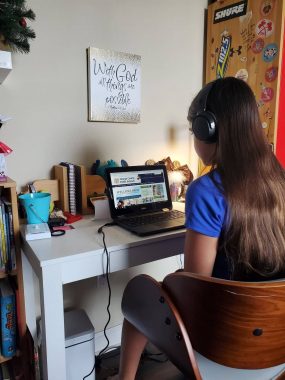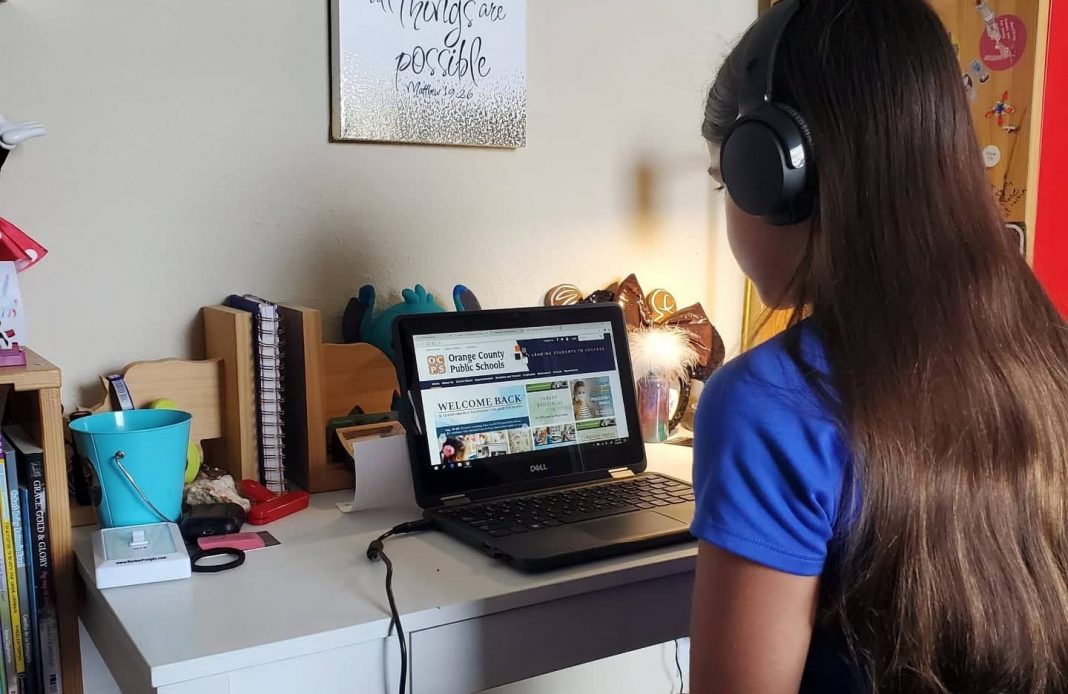The COVID-19 pandemic had caused many schools to resort to distance learning and homeschooling. With a computer connected to the Internet, children began to take classes from a space set up at home for study.

Governor Desantis has been one of the governors that has been most supportive of traditional in-person learning. He has said that all schools will follow the traditional format. He has also been avidly opposed to most COVID-19 restrictions and has pledged to not allow mask mandates or other social distancing restrictions in schools.
However, some worry that this won’t be sustainable as the new Delta variant surges. They fear that Florida will have to revert back to online learning. This means that parents will need to improve their approach to online learning as their children study from home. They should take these tips to heart, especially if they are an English language learner.
How to Prepare Your Children for a Potential Return to Online Learning
The replacement of classrooms by home learning radically changes the schooling model. In Florida, home schooling is not currently mandated for everyone, although it might be necessary again if Covid cases surge again. This could complicate back to school planning and other issues.
There are a lot of things that you have to do to prepare your child for a return to online learning.
Providing Parental Support and Addressing Computer Needs
The first involves getting support via a social outlet. The absence of physical interaction with teachers and other students must be compensated in some way with online resources, videoconferencing and, in the case of the youngest students, parental support.
Experts point out that the school model we will inherit after the pandemic caused by the new coronavirus will be different, even in Florida. It will still be face-to-face, but with more online components. This is a trend that we will also see in the world of work, with more emphasis on working from home.
The more mature the student, the more feasible online learning will be if Florida has to return to it. And the more mature the student and the more computer skills they have, the easier it is to implement a home school model.
From the age of nine or 10, children have a certain maturity. They also have basic computer skills acquired at home and at school. For this reason, from this age, many children can work on the tasks proposed by their teachers with the help of a computer at home.
Dealing with Limited Access to Cafeteria and Library
For older students, who already have autonomy, homeschooling forces a monastic study routine of seclusion. Before the pandemic, many college students were in the habit of studying in the library or a cafeteria. It was a way to get a change of scenery and breathe fresh air into the study experience.
However, for as long as the restrictions on movement and the closure of dining establishments and educational centers last, these students will have to continue their school hours and study hours from home.
Help Kids Have Better Attitudes About Using a Computer
To begin with, the student needs a computer connected to the Internet. In addition, they must have a space at home to follow their online classes and to do their homework. It is also very important to adopt a positive attitude if they want to benefit from online learning.
Create a Pleasant Study Space
If your child or teenager has a desk in his or her bedroom, then that is the perfect situation. In case they don’t have a study space in their room, you have to identify a place, preferably quiet and with natural light, where they can connect to the computer.
Try the Marie Kondo Technique
Even if the student already had a defined space for homework before the pandemic, it must be taken into account that they will spend many more hours in that place. If before he only did some homework at that table or desk, now he spends several hours a day in that place.
Therefore, it is a good idea to make some changes. The idea is that the desk, and the shelves and cabinets closest to the computer, should be as open as possible. That is to say, that books, papers and objects should not be piled up, so that all those spaces can be occupied by everything that is really needed during study hours.
It is a good opportunity to clean thoroughly and for the child or adolescent to get rid of things he or she does not need. For those of you familiar with Marie Kondo’s techniques, now would be the ideal time to put them into practice.
The Japanese organizational consultant encourages us to throw away everything we don’t use and for which we have no emotional attachment. At other times it is not a matter of throwing things away, but of moving them around.
With good organization, study hours can be more productive. Space should be freed up so that all the essentials, whether dictionaries, notebooks or writing materials, are within the student’s reach. The idea is also that the surfaces closest to the student are not overloaded, a clutter that generates overwhelm and does not contribute to concentration and a good working atmosphere.


















